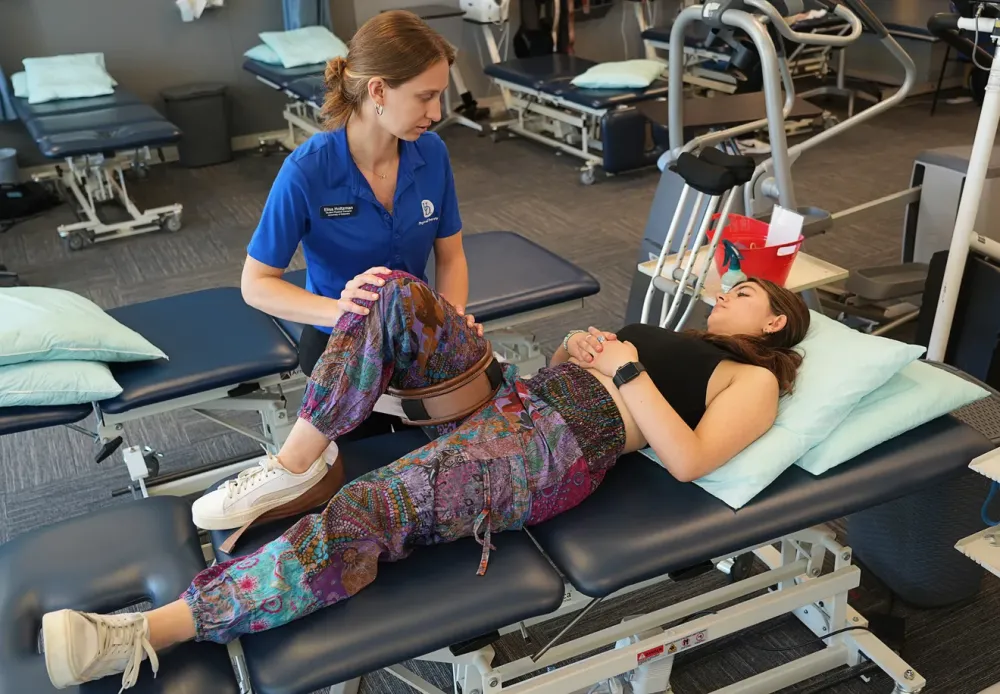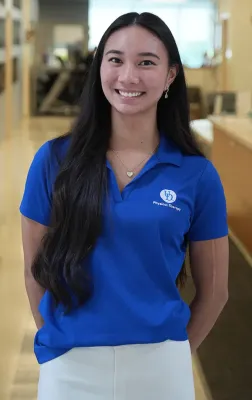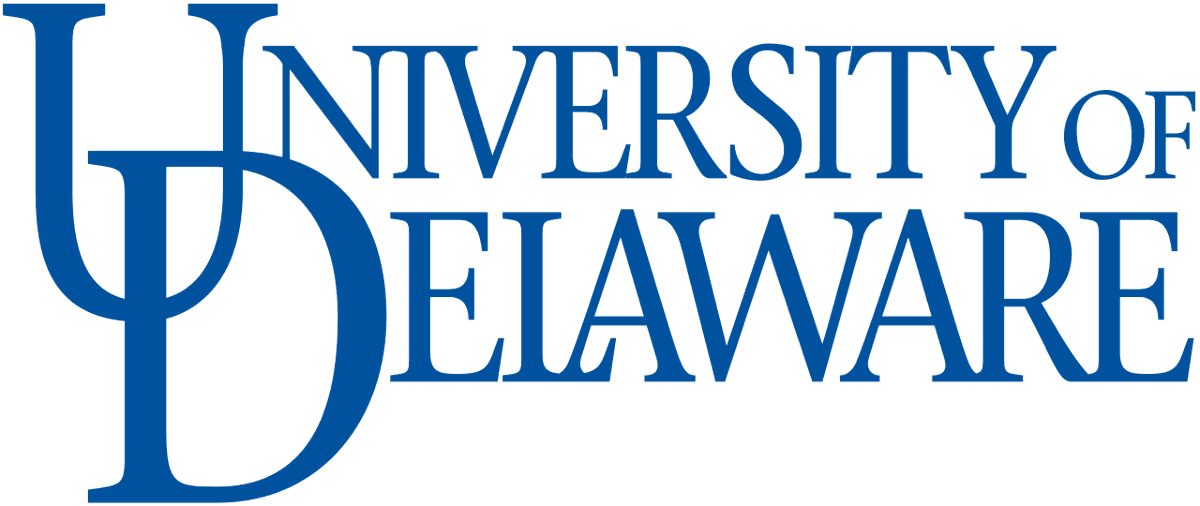UD’s Grad Studies in PT Rank #1 Once Again, According to Study by U.S. News & World Report

Elisa Holtzman, a student at the University of Delaware’s Physical Therapy Clinic, helps Cai Foster rehab the torn labrum in her hip. Photo by Damian Giletto
Program offers active research environment along with doctoral degrees, residencies and fellowships
By KELLY POWERS
Movement is powerful.
Sammy Namit always loved to run, to hike and to stay active. It may have seemed only natural to study kinesiology as an undergrad at the University of Delaware, as she knew she’d never settle for a desk job. But the New York native’s decision to pursue a career in physical therapy solidified in the clinic.
“I was really just talking with the patient, and making them a little bit more comfortable when they’re doing their exercises, making sure that they’re following through, getting to learn more about them, and just learning more like about where they are in their injury,” Namit said, thinking back to hours as a PT aid at University of Delaware. When it was busy enough, undergraduate aides like her could help out.
“I feel like that was something that really stuck with me, like: Movement is powerful.”
Today, the graduate student is pursuing a doctor of physical therapy degree, and she didn’t need to look far for a competitive program. UD’s physical therapy program within the college of Health Sciences has ranked No. 1 nine times in the last decade in graduate program rankings from U.S. News and World Report.
In 2025, it happened again.

Samantha Namit is a first-year student in the University of Delaware’s Physical Therapy Doctoral Program. Photo by Damian Giletto
Namit smiled next to program chair, Professor Darcy Reisman, as she described finishing just her first year this semester. Delaware’s largest university boasts a 2.5-year DPT degree, alongside six residency and fellowship programs, two doctoral routes and an active research environment.
Program research has explored daily movement for stroke patients, according to UD, alongside improving the latest prosthetics. And, at least two graduates have gone on to join the extensive Blue Hen PT network — from the Philadelphia Eagles training staff.
For Namit, her next chapter is just downstairs.
UD physical therapy demands hand-on approach
Next comes much more than observation.
“I am going to be getting to do my integrated clinical experience this summer and fall,” Namit said.
With fellow students, she will help manage a regular caseload of patients coming into the Delaware Physical Therapy Clinic, located in UD’s STAR Health Sciences Complex, while continuing classes. She’s nervous but excited to begin working closely with people — the only way to really learn the job.

“You can learn as much as you want about the human body and the soft skills about how to handle conflict,” the vice president of her DPT class said, thinking about early course loads of in-depth human anatomy, musculoskeletal problems and much more.
“But it’s not until you get into the clinic, when you’re working with a real patient, who is right in front of you, has real world problems, that you’re able to fully embrace all of your soft skills and just work closely with them.”
A typical journey to this clinical degree must also include two other “externships,” that’s 10 weeks in an inpatient facility and another in an outpatient facility, according to Reisman.
After graduation, students should be molded into entry-level practitioners capable of stepping into a career, transitioning into research or pursuing a specialty. Right now, only about a third of graduates go on to specialty residency training.
“We’re continuing to march forward with our research, that engine keeps going,” the program chair said, knowing her faculty help write overall clinical practice guidelines in physical therapy. “I think where we’re really innovating right now is in the landscape of education.”
Reisman and her team have been looking to bolster opportunities for post-graduate residencies, as the field increasingly demands it. The program has received support and approval for a pilot program to promote a “seamless transition” between the clinical degree and specialty residencies. It mirrors the transition to doctorate research.
“Nationally, the field is very excited about these kind of pilot programs,” the professor said, herself with a neurologic rehabilitation specialty. “And Delaware is on the cutting edge of innovating and leading those kind of efforts to move the profession forward, because we believe that specialized care is better care.”
Namit is interested in the same neurologic rehab specialty, but she’s keeping options open.
“Right now, I’m just keeping an open mind,” she said, not yet sure if she’ll stay in the First State or follow opportunities nearby. “I love working with all people. I love neuro, but I’m also super excited about the musculoskeletal system and just all the injuries and everything like that.”
She’ll have an award-winning program and year-round support to figure it out.
This article was originally posted the Delaware News Journal at https://www.delawareonline.com/story/news/education/2025/04/23/university-of-delaware-physical-therapy-rank-graduate-programs-us-news-world-report/83137329007/.